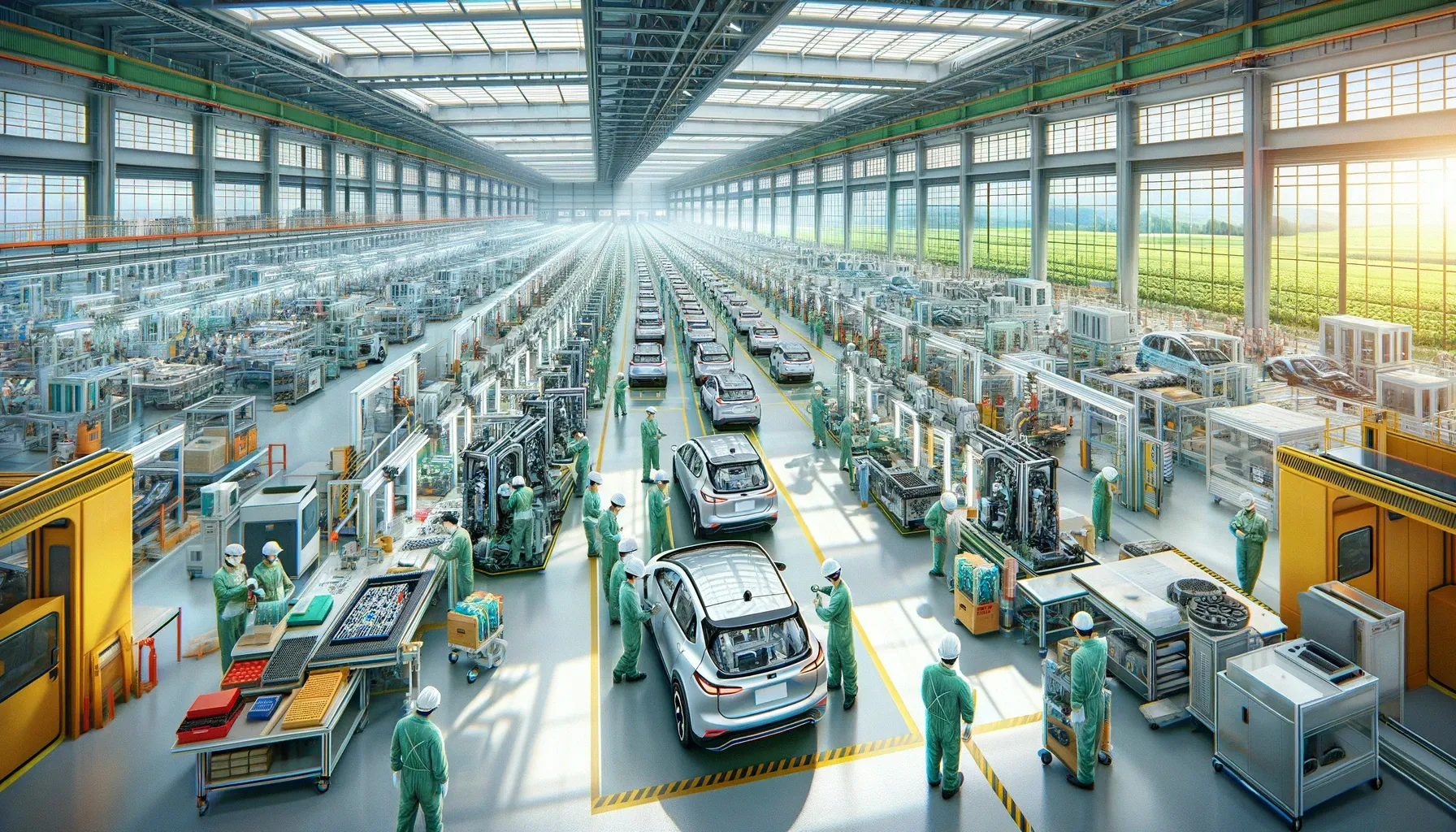US Slammed for Attempt to Rally G7 Against Chinese Emerging Industry Protectionist Move to 'Harm Interests of Consumers, Hinder Green Transition'
Chinese experts have voiced strong criticism against the US efforts to galvanize G7 nations into forming a protectionist coalition targeting China's burgeoning industries, particularly the electric vehicle (EV) sector. This issue will be a focal point at the upcoming G7 finance meeting in Italy. Chinese analysts argue that

Chinese experts have voiced strong criticism against the US efforts to galvanize G7 nations into forming a protectionist coalition targeting China's burgeoning industries, particularly the electric vehicle (EV) sector. This issue will be a focal point at the upcoming G7 finance meeting in Italy.
Chinese analysts argue that the US is unlikely to succeed in its objectives, as such actions do not align with the interests of several G7 member states that maintain robust trade relations with China, especially in the EV sector. Furthermore, these actions could hamper global initiatives aimed at addressing climate change.
US Treasury Secretary Janet Yellen, during a visit to Frankfurt, Germany, emphasized the need for the US and Europe to collaborate strategically to combat what she described as China's industrial overcapacity. She reiterated this stance in a statement ahead of the G7 finance ministers and central bank governors meeting in Italy.
Impact on G7 Members and Global Green Initiatives
Gao Lingyun, an expert from the Chinese Academy of Social Sciences, highlighted that while China exports relatively few EVs to the US, its presence in the European market is significant through joint ventures. Consequently, the US strategy might have a more pronounced impact on Europe than on the US itself.
Europe's commitment to environmental issues and the interconnection of its new-energy industrial chain with China suggest that other G7 members might prioritize their economic interests and cooperation with China over aligning with the US agenda. Zhang Xiang, Director of the Digital Automotive International Cooperation Research Center of the World Digital Economy Forum, noted that supporting the US could result in higher EV prices in countries like Germany and France, potentially leading consumers to revert to traditional gasoline vehicles and slowing down emission reduction efforts.
In 2023, China exported approximately 1.2 million new-energy vehicles, with Europe accounting for 38% of these exports. This underscores the significant market position of Chinese EVs in Europe. The US market, in contrast, is dominated by local brands with minimal Chinese imports.
Refuting the Overcapacity Narrative
Yellen's push for G7 unity coincides with the US intensifying its crackdown on China's new-energy industry, including imposing additional tariffs on Chinese products. These measures have faced criticism from business leaders and are expected to impact the global green industry negatively.
Tesla founder Elon Musk has publicly opposed the US tariffs on Chinese EVs, advocating for free market competition without tariffs. Tesla's continued investment in China, including the recent groundbreaking of its Shanghai Megapack energy storage plant, exemplifies the benefits of China-US cooperation, countering Washington's overcapacity claims.
European automakers are also increasing their investments in China. For instance, BMW plans to invest an additional 20 billion yuan in its Shenyang production base, while Volkswagen has committed 2.5 billion euros to its innovation hub in Hefei.
China's Response and Future Cooperation
China's Foreign Ministry spokesperson condemned the US for using overcapacity as a pretext to coerce G7 members into protectionist measures against Chinese new-energy products. The spokesperson emphasized that such protectionism contradicts the global trend towards openness and mutual benefit, potentially harming consumers and hindering the global green transition.
China has reiterated its willingness to collaborate with all countries to enhance cooperation in new energy industrial and supply chains, fostering technological innovation and industrial development. The spokesperson called for embracing open cooperation, rejecting protectionism, and striving for mutual benefit.
In conclusion, the US attempt to rally G7 nations against China's emerging industries faces significant opposition and potential pitfalls. The broader implications for global trade, consumer interests, and environmental goals underscore the complexities of such protectionist strategies.




